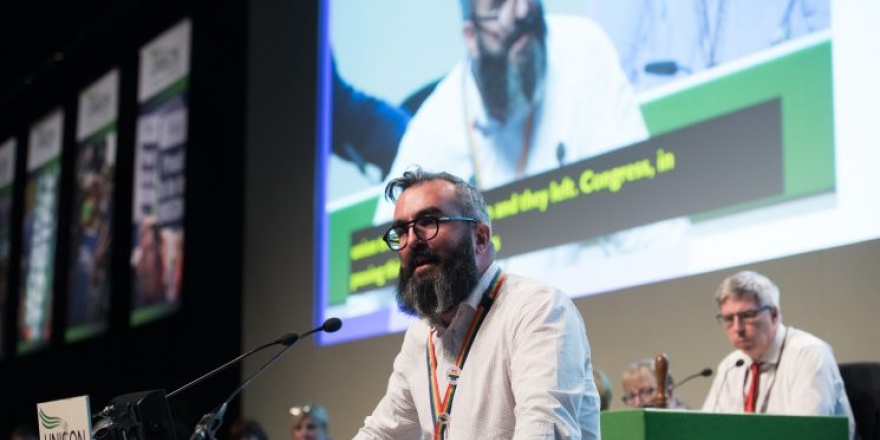
UNISON urges an end to the ‘ongoing crisis in social care’

UNISON delegates in Liverpool today spoke of the continuing crisis in social care, whose workers are “almost universally underpaid, largely undervalued and often exposed to exploitation”.
They vowed to continue the union’s campaign on behalf of the sector, its clients, and the people who work tirelessly to keep it afloat.
Although social care has been relatively protected compared to other council services, care spending per adult resident has fallen substantially since 2009-10.
The union believes that the sector faces a “perfect storm” in which the impact of years of chronic underfunding has been worsened by increasing demand and the knock-on impact of cuts to other key public services, such as housing and welfare.
Nearly 90 people die each die while waiting for social care. There are 8,000 fewer care beds than three years ago. And a record 1.4 million older people do not receive the level of care they need.
Despite the cuts, the union believes that were it not for the ongoing dedication and commitment of the social care workforce, “the sector would have imploded completely”.
James Anthony (pictured) of the NEC told delegates: “Even before austerity, social care was on the brink – privatisation, underfunding, fragmentation, way down the political agenda, always the poor cousin of the NHS.”
And a decade of austerity has since “ravaged” the sector, he added, not least because hedge funds put profit before people and care companies have collapsed.
Although the government had been forced to consider the issue, Mr Anthony noted that its promised green paper had been delayed five times and was still to be seen. “The Tories can’t even set out what they think the options are for social care.”
Mr Anthony said that UNISON’s aims were for a well-resourced service, collectively funded, staffed by highly skilled professionals who were properly paid, and firmly based around the needs of the client.
He also said that UNISON assistant general secretary Christina McAnea was heading a cross-service group programme aimed at recruiting and organising social care workers.
“UNISON will not let social care staff down. They are not an easy group to organise, but we are determined to get it right.”
Retired member Sheena Gordon said that the plight of elderly people was one reason why dealing with social care was “a matter of urgency”.
She said: “With an ageing population, many elderly people, including UNISON retired members, are dependent on social care to enable them to have dignity in later life.
“Properly funded social care would also enable people to remain in their own homes.”
A member from Sefton branch said it was care workers who were “staving off the crisis with their tireless hard work and dedication, meeting clients’ needs with too little time and too few resources”.
Another, from Salford, was clear why the Tory government had dragged its feet over the issue.
“The Tories have no interest in social care,” he said. “They don’t care because they don’t use it. And they don’t care because they are only interested in the rich.”
Lilian Macer from Scotland said that more than 200,000 people worked in social care in Scotland, 7.7% of the workforce. Of those, 82% were women.
“These are a dedicated workforce in precarious contracts of employment, “she said.
Ms Macer told delegates about the social care inquiry carried out by the Fair Work Convention in Scotland, which has reported a culture of zero-hours, unpredictable working hours and unstable earnings.
The inquiry has recommended that the Scottish Government support a new sector body ensuring a voice for the sector and collective bargaining.
The union agreed to campaign with the Labour Party, charities and others for:
- Social care to finally receive the proper funding it deserves, particularly from the 2019 Spending Review, as part of a longer-term plan to ensure parity with the NHS in terms of access of services and its status within society.
- Any spending boost to be accompanied by meaningful reform of service delivery – to improve the system for staff and those they care for.
- Highlight the current plight of care workers and service users, particularly women.
- Social care workers to be recognised as highly skilled professionals entitled to decent pay and working conditions, proper support and supervision, high quality training and clear pathways to career progression.
It was also agreed that social care remain an organising and recruitment priority for the union.


